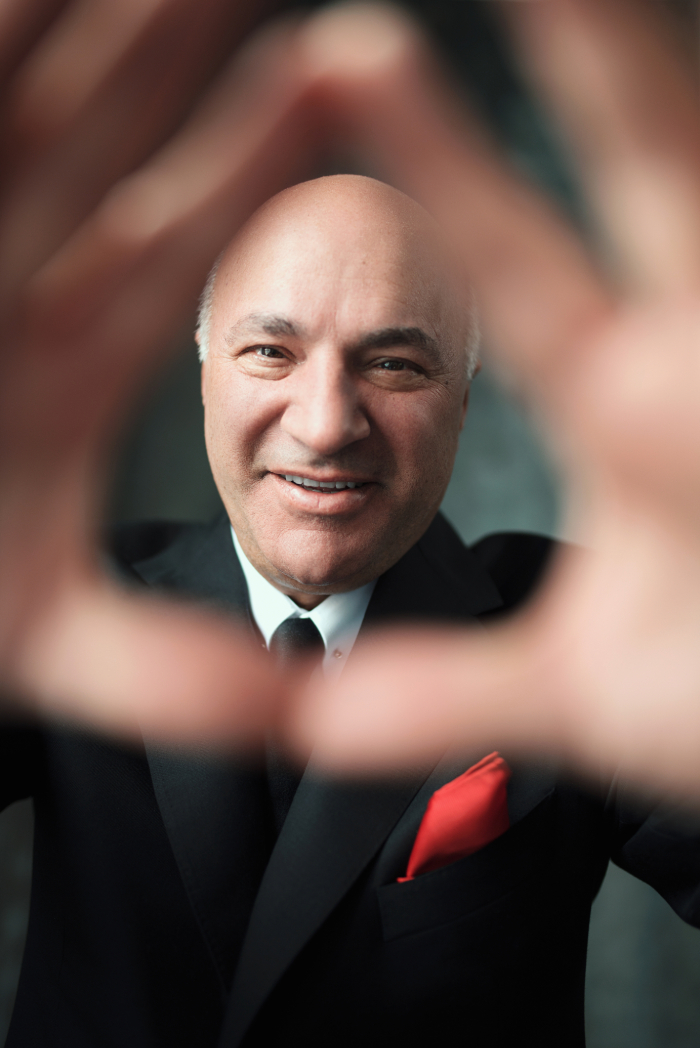Mind Medicine Inc. (MindMed) Ready to invest in Psychedelic Medications?

MindMed Goes Public: an interview with CEO J.R. Rahn and investor Kevin O’Leary
Investors intrigued by the buzz surrounding a new breed of startups developing medications based on psychedelics can expect new opportunities to invest in the sector this year.
Mind Medicine Inc. (MindMed), whose backers include entrepreneur Kevin O’Leary of “Shark Tank” fame, has become the first psychedelics pharmaceutical firm to go public. The Toronto-based company, which is developing “psychedelic-inspired medicines” to combat opioid addiction and other disorders, completed its initial public offering March 3 on the NEO Exchange in Canada. (NEO is the favored stock exchange for the cannabis industry, which cannot float shares in the United States because of lingering legal issues. NEO expects to add more medical psychedelic firms to its market in coming months.)
“I like to invest in very big ideas that solve huge problems,” O’Leary said in an interview with Advisors Magazine. “If it solves even one of the issues around alcoholism, depression, or opioid addiction, it’s a multi-billion-dollar medicine. They’re trying to solve a huge problem, and I want to be part of it.”
MindMed had already raised more than $24 million in pre-IPO funding before going public. Other investors include Bruce Linton, founder and former CEO of listed Canopy Growth, the largest cannabis company in the world; and Canadian investment bank Canaccord Genuity. Its market capitalization as a publicly traded company reached CAD 115 ($85 million) in early March, well above its $50 million target.
MindMed’s objective is to become the largest listed psychedelics company in the world, according to JR Rahn, co-founder and CEO of MindMed. The former Uber marketing employee and Silicon Valley entrepreneur predicted MindMed would be the first to market with its new drugs. He added the company plans to make more acquisitions and collaborate with other firms to build a “compelling portfolio” of new medications.
MindMed is preparing to first seek FDA approval to market 18-MC, a non-hallucinogenic version of the natural psychedelic drug ibogaine. Last fall, MindMed acquired Savant Health and Wellness Products, a Swiss company that held the rights to 18-MC. Savant was founded by Stan Glick, who pioneered medical uses for the drug, which is derived from a West African shrub. Ibogaine is a Schedule 1 drug, but 18-MC itself has not been classified by the Federal Drug Administration or by the Drug Enforcement Agency.
 Interest in psychedelic-based solutions has grown in recent years, sparked by promising overseas research and FDA approval of “breakthrough status” to medicines being developed from several psychedelics and semi-psychedelics. Anecdotal reports of Silicon Valley entrepreneurs who regularly use micro-doses of LSD to improve their performance without hallucinations have also brought the concept into popular culture. As a result, the industry is gaining momentum among investors as it works towards regulatory approval.
Interest in psychedelic-based solutions has grown in recent years, sparked by promising overseas research and FDA approval of “breakthrough status” to medicines being developed from several psychedelics and semi-psychedelics. Anecdotal reports of Silicon Valley entrepreneurs who regularly use micro-doses of LSD to improve their performance without hallucinations have also brought the concept into popular culture. As a result, the industry is gaining momentum among investors as it works towards regulatory approval.
However, only a handful of companies are currently pursuing clinical trials of psychedelic-based medicines using a clinical development approach, Rahn said. His company has filed an IND (Investigational New Drug Application) with the FDA and is preparing for human efficacy studies.
Phase 1 studies now underway in Brazil and Australia are being conducted to FDA standards and will be submitted to that agency, Rahn said. When those studies are done, MindMed will begin two types of Phase 2 trials in the United States. The first study will focus on opioid withdrawal. “It only looks at the patient over a 28-day basis to see if we can actually get them to come off opioid,” he explained. The company aims to present a “statistically significant data package” from that study to the FDA in about two years.
Patients who complete the shorter trial will automatically be enrolled in a longer opioid use disorder study, which will probably last six months. The second study tackles the most difficult challenge with addiction – not just getting clean, but staying clean. “18-MC is addressing this in a completely new manner,” Rahn said. “We hope to completely retool the way addiction is treated in America by treating it as a brain disease, which it is.”
The company is initially looking at New York for its Phase 2 tests, said Rahn. The company plans to open offices in New York and in Switzerland. He noted that LSD was first invented in Switzerland by Dr. Albert Hoffman at Sandoz Laboratories (now a part of Novartis). The Swiss legacy in using psychedelics as medicines is among the longest in the world: “They’ve really been looking at these substances since the early 1990s.” Government funding helped researchers discover more attributes of those drugs for potential use in therapeutic medicines, he added. “We identified Switzerland as a strategic place for us to do business because of all the know-how that already exists there.”
Rahn said what makes MindMed different from the other companies in the space is that “we have no bias to whether the drugs that we’re developing cause hallucinations or are not hallucinogenic.” He said a key element investors need to understand is that his team believes the substances under study have therapeutic benefits beyond the hallucinatory effect. MindMed maintains the brain does not necessarily need hallucinations to provide solid therapeutic outcomes.
He said 18-MC is a perfect example of that approach. Data from animal tests given 18-MC showed the drug was just as effective as ibogaine, the natural hallucinogen from which 18-MC is derived. Rahn added, “If we could isolate out some of that hallucinogenic experience, that’s not necessarily a bad thing, as long as there’s a good [medical] outcome.” Not all patients would welcome the hallucinations that accompany other psychedelics, but they would be more open to medicines that deliver their benefits.
O’Leary gave a different reason that helped differentiate MindMed from similar investment opportunities. He said his number one criterion as an investor is reflected in a basic question he asked J.R. months ago when he was first approached about the company. “I asked, ‘Do you see this company ever looking at bringing recreational psychedelics to the market?’ Because if they are, I have no interest in being involved.” Everyone in the company assured him there are no plans to move behind medical applications.
O’Leary pointed out that psychedelics are still Schedule I narcotics, so it makes sense to pursue it as a medicine through the proper regulatory authorities. Pursuing recreational uses would bring political disputes and other debates.
The recent collapse of cannabis stocks also indicates a related concern. Lower-than-expected legal sales in Canada and lingering questions about the future of the industry in the United States led to cannabis stocks losing about half of their market value last year. Institutional investors never invested in cannabis, which could have helped those stocks perform better in the market, O’Leary said.
 However, large investors are keeping a close watch on the evolution of psychedelic-based medicines. Unlike recreational or medical cannabis, the psychedelic industry will offer legal drugs with a government approval, which requires higher barriers to entry. “An idea like this is going to take capital – not just from early investors like me but also from institutional investors as time passes,” O’Leary said. If the medicines’ potential is realized, “This is a major move in medicine globally. It will require billions of dollars, and that’s not going to happen if it’s offered recreationally.”
However, large investors are keeping a close watch on the evolution of psychedelic-based medicines. Unlike recreational or medical cannabis, the psychedelic industry will offer legal drugs with a government approval, which requires higher barriers to entry. “An idea like this is going to take capital – not just from early investors like me but also from institutional investors as time passes,” O’Leary said. If the medicines’ potential is realized, “This is a major move in medicine globally. It will require billions of dollars, and that’s not going to happen if it’s offered recreationally.”
O’Leary has participated in several investment rounds for MindMed and for other molecules (such as nonoid, a stroke medication he has backed for the past decade). He expects institutional investors will eventually follow him into the emerging industry by investing in MindMed. O’Leary said he talks regularly with sovereign funds, pension plans, and other institutional investors. While they all avoided cannabis, he said, “This is different. They’re intrigued. They’re waiting to see what happens. I believe they will come on board, once these companies make investment vehicles that are available to funds that size.”
One anecdotal indication of that potential is the interest in MindMed by Alex Kenjeev, who runs O’Leary Ventures. O’Leary said Kenjeev and his team perform due diligence on potential investments. When the firm decides to make an investment, O’Leary lends Kenjeev money to take 15 percent of every deal. For the first time ever, Kenjeev declined that offer and said he wanted to invest his own money in MindMed. “He could have gotten that for free from me,” O’Leary added. “But after he dug into it, he decided he wanted to do it himself.”
O’Leary’s research before investing in MindMed included finding some of the prominent businesspeople who have been experimenting with the concept outside of legal channels. “I do know CEOs of major companies who are micro-dosing,” he said. “Part of my due diligence was to call them and ask them about their experiences.” Even though buying LSD and taking even small doses is illegal, O’Leary said, people continue micro-dosing because they have experienced favorable results. “These are mostly West Coast entrepreneurs who have decided on their own to pursue this as a medicine.” He added that the micro-dosers he talked with were not taking the drugs to simply get high: “They want solutions to their problems.”
O’Leary said he has not tried micro-dosing because he does not take illegal drugs. But once FDA approval is received, “I’m going to be the first to buy this medicine.” He added he plans to endorse the product, including taking it publicly on television.
 Micro-dosing can be risky for people buying LSD on the black market and using razor blades to divide it into smaller doses (usually 10 to 15 milligrams). Manual preparation can also yield inconsistent results, with too large a dose triggering a longer “acid trip” that users did not want.
Micro-dosing can be risky for people buying LSD on the black market and using razor blades to divide it into smaller doses (usually 10 to 15 milligrams). Manual preparation can also yield inconsistent results, with too large a dose triggering a longer “acid trip” that users did not want.
Still, the fact that so many people are micro-dosing demonstrates how much demand exists, O’Leary said. “The reality is that antidepressants aren’t working. More people are conducting this illegal self-medication because our medications are failing us.” He added regulators need to accelerate approval for the new medications because patients are waiting to use them.
O’Leary added, “I went full bore into this one because I think it has tremendous potential in so many different metrics and on so many levels for investors. Why wouldn’t I take a position in this?”
For more information on MindMed, visit mindmed.co.
